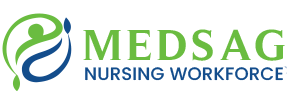When patients and their families are faced with a medical challenge, it can be overwhelming to navigate the healthcare system and find the resources they need. As healthcare providers, it is our responsibility as a Nurse to help patients connect with the appropriate resources to help them through their journey. However, it is important to consider diverse perspectives to ensure that all patients have equal access to resources and support.
Medical resources such as hospitals, clinics, and pharmacies are vital to providing patients with medical care. However, it is important to consider diverse perspectives when accessing medical resources. Patients with disabilities may have difficulty accessing medical facilities that are not wheelchair accessible. Additionally, patients with limited English proficiency may need interpretation services to communicate effectively with their healthcare provider. It is essential to ensure that medical resources are accessible to all patients.

Community resources such as support groups, financial assistance programs, and social services are essential to supporting patients and their families. However, it is important to consider diverse perspectives when connecting patients with community resources. Patients from underserved communities may face barriers to accessing these resources due to financial constraints or geographic limitations. It is important to ensure that all patients have equal access to community resources.
Educational resources such as health classes, workshops, and online resources can be valuable tools for patients and their families. However, it is important to consider diverse perspectives when providing education. Patients from different cultures may have different beliefs and values about healthcare. It is essential to provide education in a culturally sensitive and appropriate manner to ensure that patients can make informed decisions about their health.
Lack of awareness about available resources, geographic barriers, and financial barriers are common challenges that patients and their families face when accessing resources. It is important to consider diverse perspectives when addressing these challenges. For example, patients from low-income communities may not have access to reliable transportation to medical facilities. Healthcare providers can work with community organizations to provide transportation services to ensure that patients can access medical resources.
Healthcare providers play a critical role in connecting patients and their families with resources. However, it is important to consider diverse perspectives when providing support. Healthcare providers can work with interpreters to ensure that patients with limited English proficiency can communicate effectively. Additionally, healthcare providers can work with community organizations to ensure that patients from underserved communities have access to resources.
Successful resource connection can have a significant impact on patient outcomes. For example, a patient from an underserved community may have difficulty affording medication for a chronic condition. A healthcare provider may connect the patient with a financial assistance program that provides medication at a reduced cost. This connection can help the patient manage their condition effectively and improve their quality of life.
In conclusion, connecting patients and families with resources is critical to supporting patients through their medical journey. However, it is important to consider diverse perspectives to ensure that all patients have equal access to resources and support. Healthcare providers can work with community organizations and interpreters to provide culturally sensitive support that addresses the unique needs of each patient. Together, we can ensure that all patients receive the resources and support they need to manage their health effectively.

